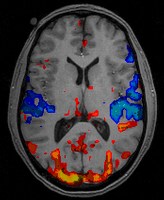Injury, such as falls, motor vehicle crashes, and drug overdose, is a major source of morbidity and mortality. The interaction between injury and disease is complex and mutually causative. For instance, patients with Alzheimer’s Disease or Parkinson’s Disease are known to be at heightened risk of hip fracture from falls and in turn injurious falls among these patients can drastically alter the trajectory of the disease. So far, research on injury-disease interaction has been scant and fragmented. The proposed project is aimed at uncovering the gestalt of the relations between different injuries and different diseases through a data science approach.





